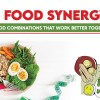
IS YOUR DIET CAUSING BABY'S COLIC?
Colic is one of the most mystifying ailments of childhood. There is a conflict around colic in every area, may it be its diagnosis, treatment or even cause. This mystery term usually applies to any healthy, well-fed infant who cries intensely or for more than 3 hours a day, more than 3 days a week and for more than 3 weeks. The only good new about colic is that it goes away by the time your baby is 3 or 4 months old.
Let’s Explore the secret of colic!
The exact cause of colic is unknown. It is believed that there are a few foods in mother’s diet which affect breast milk and cause intestinal gas or other digestive problems, making the baby’s crying episodes even worse. A few such foods could be-garlic, onions, cabbage, turnips, beans, broccoli, caffeine, cow’s milk. Let’s look at some potential irritants.
Scary dairy
Sensitivity to cow’s milk is thought to be a leading cause of your baby’s colic. The protein in cow’s milk can be easily transferred to the mother’s feed and this helps to give more proteins to the precious one. But what if your baby is sensitive to it? If you suspect it to be the case, eliminate dairy products such as milk, curd, cheese etc. from your diet for 7-10 days and check for any improvements. If there comes out to be no change, you can reintroduce the dairy back.
Cough out caffeine
Having a significant amount of caffeine may lead to bouts of crying in baby. Caffeine is present in soft drinks, chocolate, coffee, tea, energy drinks and certain cough syrups. Some mothers believe that giving up on caffeine produces instant changes in the baby’s behaviour.
Advise no spice
Have you ever tasted your breast milk after having a spicy dinner? It tastes differently. Some babies are just fine with a little spice that enters in the feed and they develop new tastes, but for others, even the mildest of spices can be enough to cause discomfort.
Trash the gas causes
Gas causing foods are sprouts, cabbage, onions, broccoli, cauliflower etc. Too much gas leads to discomfort both to mother and baby.
Dirty nutty
The most common culprits for mild colic are wheat, soy, peanuts and corn.
Keep a record of what you eat and how your baby acts to it, especially during crying episodes. The basic rules to keep a mother’s diet healthy in the post-delivery period are to keep foods gentle, warming and nourishing. It involves slow-cooked foods such as soups or stews, avoiding too much raw food. Anything too hard that comes through mother’s milk can be damaging to a baby’s underdeveloped gut.
The final word
Colic isn’t just hard on baby, it’s hard on parents too! But it’s a mystery. Explore your child colic. Uncoil the mystery. It’s just a hit and trial.






